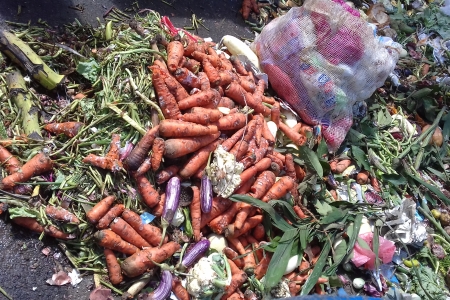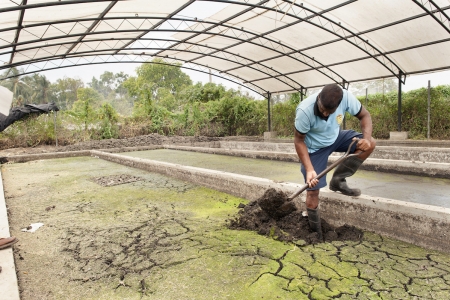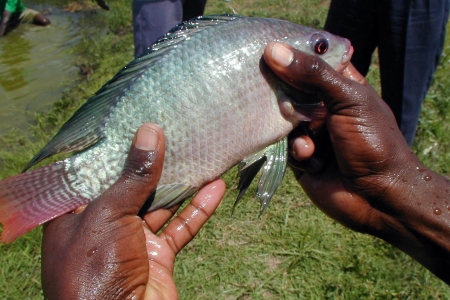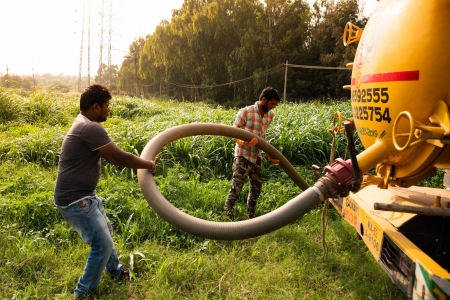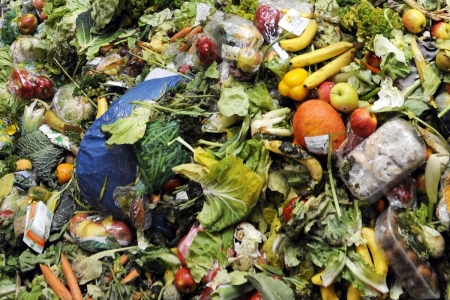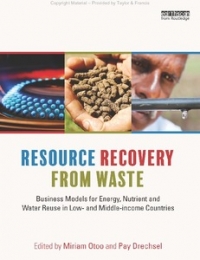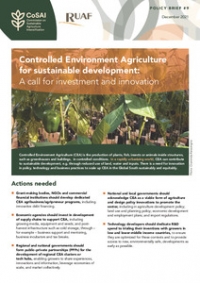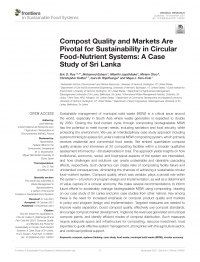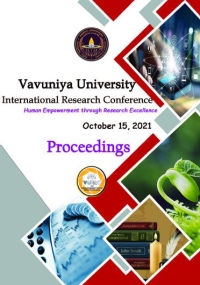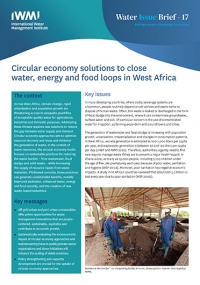Vast, valuable amounts of energy, essential agricultural nutrients, and water could be recovered from the world’s fast-growing volume of municipal wastewater, says the United Nations University.
A newly-published study reveals a staggering 380 billion cubic meters (m3 = 1000 litres) of wastewater are produced worldwide each year — five times the volume of water passing over Niagara Falls annually. That much water would fill Africa’s Lake Victoria in just under seven years, Lake Ontario in just over four years, and Lake Geneva in less than three months.
And the volume of wastewater is increasing quickly, with a projected rise of roughly 24% by 2030, 51% by 2050. By the mid-2030s, wastewater worldwide will roughly equal the volume of water flowing each year through the St. Lawrence River.
Among major nutrients, 16.6 million metric tonnes of nitrogen are embedded in wastewater produced worldwide annually, together with 3 million metric tonnes of phosphorus and 6.3 million metric tonnes of potassium. Theoretically, full recovery of these nutrients from wastewater could offset 13.4% of global demand for them in agriculture.
Beyond the economic gains of recovering these nutrients are critical environmental benefits such as minimizing eutrophication — the phenomenon of excess nutrients in a body of water causing dense plant growth and aquatic animal deaths due to lack of oxygen.
The energy embedded in wastewater, meanwhile, could provide electricity to 158 million households — roughly the number of households in the USA and Mexico combined.
The CGIAR Research Program on Water, Land and Ecosystems (WLE) and the International Water Management Institute (IWMI) contributed its latest research findings to the report. WLE and its lead research centre IWMI have been leading the sector on development of business models, which include an understanding of the incentives and barriers affecting safe wastewater reuse.
“For countries to progress, there is a need to invest in a supportive regulatory and financial environment towards a green economy,” says WLE/IWMI’s Pay Drechsel, who is second author on the report. “And we need to leverage private capital for resource recovery related business models that are financially feasible and increase cost recovery from municipal wastewater.”
The study’s estimates and projections are based on theoretical amounts of water, nutrients, and energy that exist in the reported municipal wastewater produced worldwide annually. The authors underline that generated, available and reused wastewater volumes is scattered, infrequently monitored and reported, or unavailable in many countries. They also acknowledge the limitations of current resource recovery opportunities.
The paper, “Global and regional potential of wastewater as water, nutrient, and energy source”, is published by Wiley in Natural Resources Forum, a UN Sustainable Development Journal.
The paper cites nine WLE/IWMI publications, including a landmark book that collates wastewater and other business models and case studies: Resource recovery from waste: business models for energy, nutrient and water reuse in low- and middle-income countries. The research has been assessing the value chains, profitability, risks and regulatory environments of dozens of these models around the world. WLE and IWMI are working to streamline the business model related knowledge into the curricula of at least 19 universities.
Adapted from the United Nations University Institute for Water, Environment and Health (UNU-INWEH) release.
Press coverage: Over 100 media outlets covered the study's results, including:
Science Magazine, USA
BBC, UK
Sciences et Avenir, France
Climate News Network, UK via Eco-Business, Singapore
Naked Scientist, UK
Down to Earth Magazine, India (904,000)
All Africa, USA
IndoAsian News Service (IANS), India
Europa Press, Spain
VRT, Belgium
Deutschlandfunk, Germany
Notimex, national newswire, Mexico
The Guardian, Nigeria
Rocky Mountain Outlook (Print Edition), Canada
Co-author Dr. Pay Drechsel, IWMI/CGIAR-WLE is available for email Q&A in English or German. Contact a.hunt (a) cgiar.org

